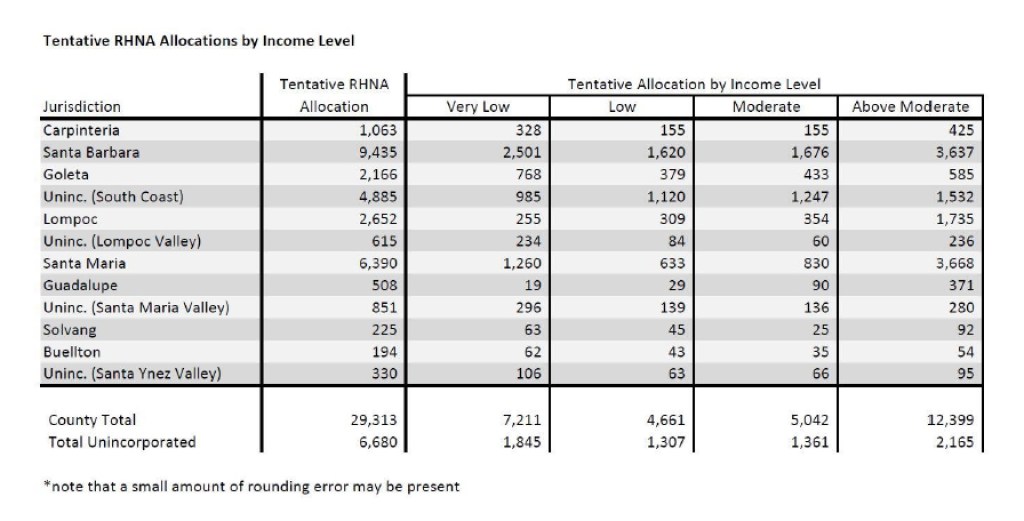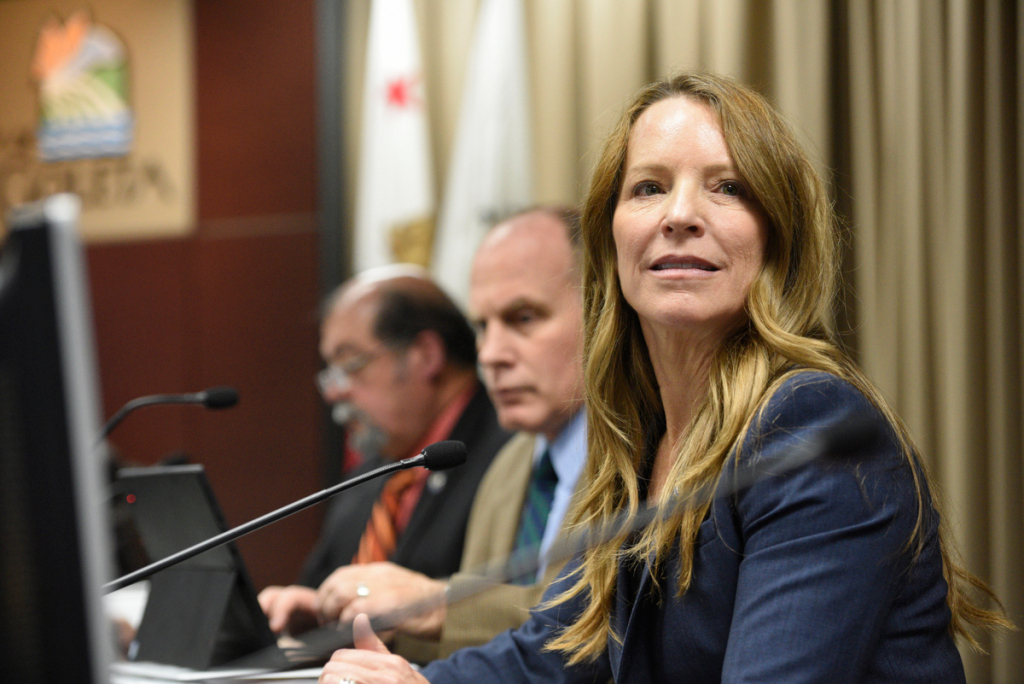If Goleta allowed all its mixed-use properties – mainly shopping centers and office complexes – to hold residences, as many as 7,400 additional housing units could be created. This was a good start, said Planning Manager Anne Wells, only half in jest. In theory, Goleta faces a potential requirement of 2,166 new dwellings, courtesy of the state’s Regional Housing Needs Allocation (RHNA), which doubled the city’s previous allocation.
Every eight years, California attempts to balance its burgeoning population with housing in its constituent jurisdictions. The allocations direct cities and counties to put in place the residential zoning that allows the housing to be built. The actual construction is up to private developers, but the zoning requirement clears one obstacle in their way. In fact, for municipalities that fail to certify a Housing Element with the state that outlines its numerical zoning compliance with the RHNA, pronounced “Reena,” in certain circumstances, the state could enforce a streamlined permit process. All nine jurisdictions in the county possess a Housing Element that satisfies the current RHNA cycle, said Mike Becker, director of planning at the Santa Barbara County Association of Governments (SBCAG).
For the state as a whole, the goal is 3.5 million units in 2023-2031, which is the next RHNA cycle, said Becker. SBCAG is coordinating with the California Housing and Community Development Department, which tripled the county’s number to 29,313 from 11,030. For the City of Santa Barbara, the estimated total is 9,435; for Santa Maria, it’s 6,390. The unincorporated area of the county south of the Santa Ynez Mountains – where 60 percent of county jobs are located — is allotted another 4,885.
Get the top stories in your inbox by signing up for our daily newsletter, Indy Today.
Which isn’t to say those are the final numbers, Becker pointed out. On December 17, SBCAG’s board will meet to discuss the methodology used to divide units among the various areas of the county and send their comments to their partners at Housing and Community Development. More back-and-forth about methods and numbers will ensue, though Becker didn’t expect the numbers to change much by the time the final tally comes back next summer.

How to distribute the 29,000 units among eight cities and the county was the job of a Technical Planning Advisory Committee, composed of participants from all jurisdictions. They first decided to set numbers for North and South County based on jobs, both current and future. They then apportioned housing needs among the regions — using Census data on household income and the available housing that matched — divided into very-low, low, moderate, and above-moderate housing. Among county households, 24.6 percent were in the very-low-income category, Becker stated.
The big increase in the allocations was in part to address the overcrowding evident in California’s housing and the overpayment of mortgage and rent. Overcrowding was defined as more than one person per room, and “rooms” only excluded bathrooms and kitchens. Overpayment was anything over 30 percent of a household’s income. An equitable distribution of variously priced housing among the regions was the goal, Becker said, although it will take more than one RHNA cycle to accomplish it completely.
Another hoped-for result is the reduction of greenhouse-gas emissions by placing appropriate housing where the jobs are.
Goleta has little land suitable for new residential buildings, Anne Wells told the City Council on December 1, which is why they were looking at the mixed-use strategy, which would consist perhaps of an added second story or more. Her 7,400 units was just a ballpark figure, and an accurate number would require a parcel-by-parcel analysis, she said.
As well as mixed-use properties, accessory dwelling units (ADUs) present another source of housing, a public commenter observed. Kevin Barthel noted the city had about 5,000 single-family houses, and each could legally hold an ADU. Wells acknowledged that an ADU would count as an additional housing unit, and Planning Director Peter Imhof affirmed that increased density was one way to achieve affordable housing.
The city won a $153,000 grant to revise its current Housing Element once the final RHNA allocations are set. It will be hiring a consultant for the long-term project, which will require a General Plan Amendment before February 2023. Between then and next spring, Goleta’s planners will examine scenarios on how to accomplish the zoning work, model the various end results, and hold public workshops on the RHNA process.
Every day, the staff of the Santa Barbara Independent works hard to sort out truth from rumor and keep you informed of what’s happening across the entire Santa Barbara community. Now there’s a way to directly enable these efforts. Support the Independent by making a direct contribution or with a subscription to Indy+.

 on Google
on Google 



You must be logged in to post a comment.